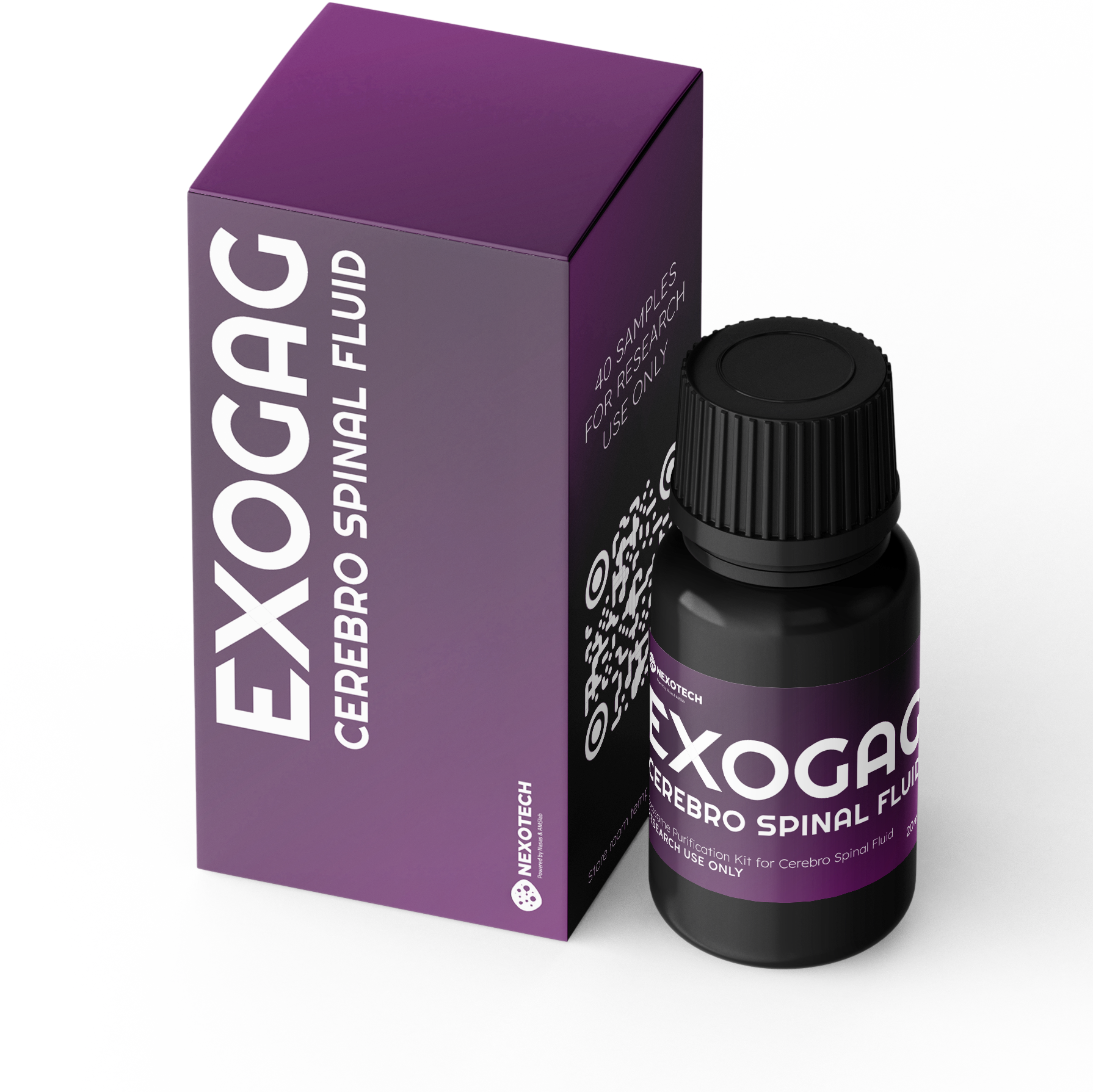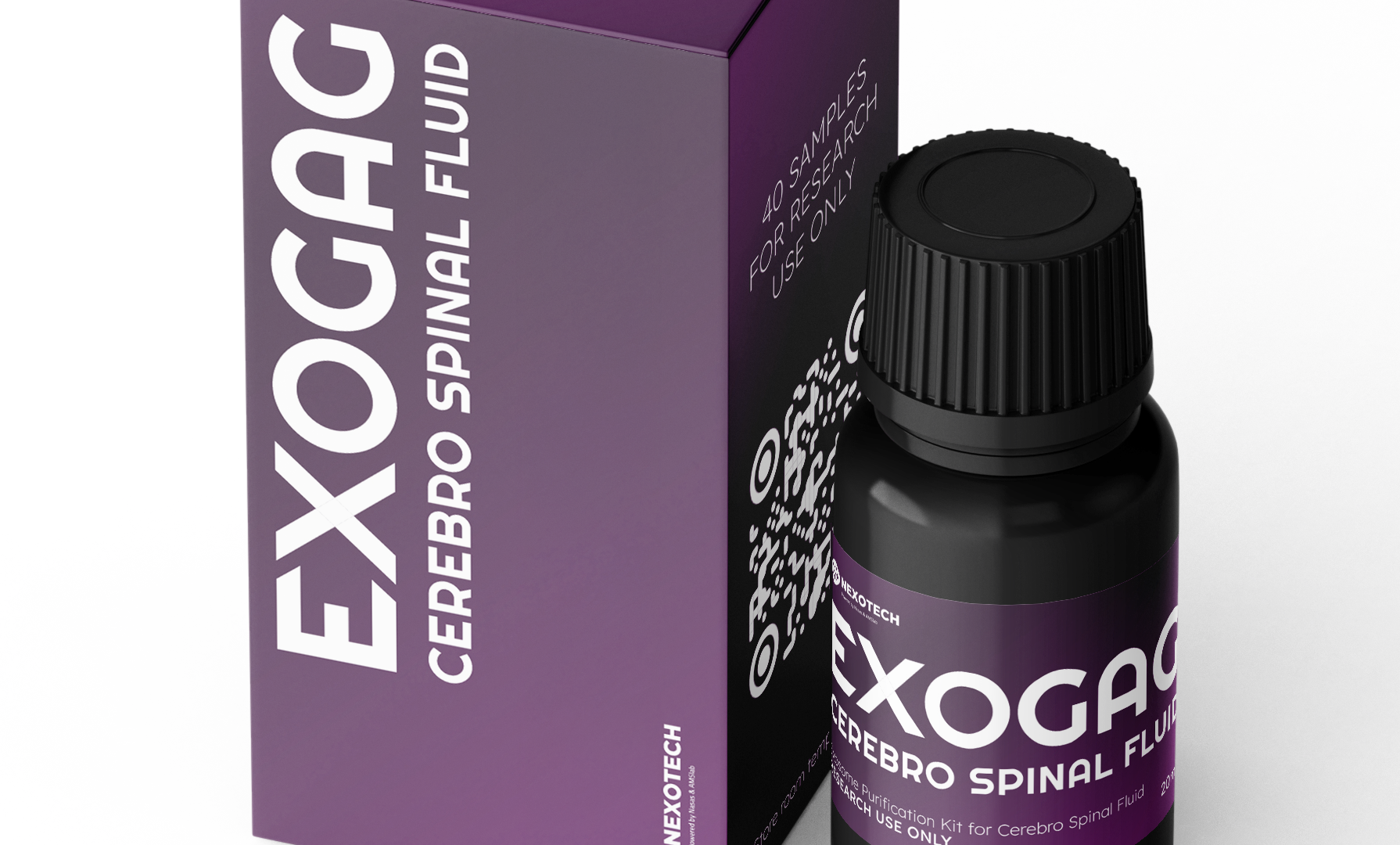

Cerebrospinal fluid is body fluid flows in and around the hollow spaces of the brain and spinal cord, and between two of the meninges. It is made by tissue called the choroid plexus in the ventricles (hollow spaces) in the brain. Although, cerebrospinal fluid derives from blood plasma, it does not contain erythrocytes and is nearly protein-free, but it presents extracellular vesicles (among them exosomes).
Given its contact with the brain and the spinal cord, it is the most informative biofluid for studies of the central nervous system in both physiological and pathological conditions. However, in contrast with others biofluids, its collection is through an invasive method (lumbar punction).
Exosomes isolated from cerebrospinal fluid represent a good potential alternative to tissue biopsy.
Obtain exosomes quickly and reliably from cerebrospinal fluid.
Additional Information
ExoGAG should be stored in darkness. And, prior to use, ExoGAG must be vortex.
Recommended Usage
We recommend to use 500 ul of cerebrospinal fluid as starting material
If you still have questions

